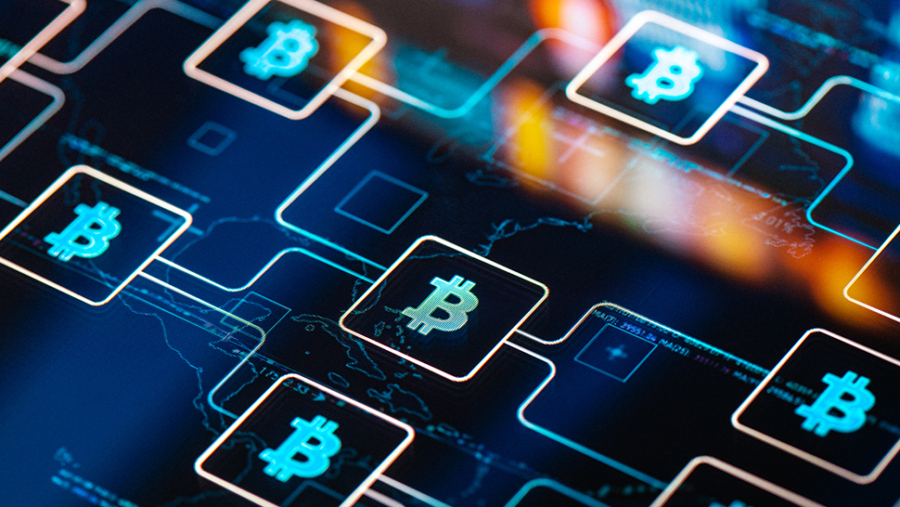

Q. What is cryptocurrency?
A. HMRC defines crypto assets, or cryptocurrencies, as “cryptographically secured digital representations of value or contractual rights that can be transferred, stored and traded electronically”. In simpler terms, cryptocurrency is a digital asset that can be traded and used to pay for things. The value of cryptocurrency is determined by supply and demand, hence its much-publicised volatility.
Q. I often hear about Bitcoin and Ethereum – are they different to cryptocurrency?
A. Cryptocurrency is the generic term for virtual or digital money that takes the form of “tokens” or “coins.”
Bitcoin is probably the most widely known type of cryptocurrency and was designed with the primary purpose of being used as a trading currency.
Ethereum is a platform that uses blockchain technology and is popularly used for creating smart contracts due to the technical features of the platform. Ether is a token that is used to transact on the Ethereum blockchain platform.
Q. What is blockchain?
A. A blockchain is a digital information ledger that is duplicated and distributed across the entire network of computer systems on the blockchain.
The most common information stored on blockchain ledgers is transaction information in respect of cryptocurrencies. The principal purpose of blockchain is to allow digital information to be recorded and distributed publicly, but not edited.
The community nature of blockchain means that information is recorded and distributed across a substantial number of computer systems to prevent any manipulation.
Q. What is the function of a wallet?
A. A crypto wallet stores the private keys needed to access, send, and receive cryptocurrency. The wallet does not hold the cryptocurrency – which is stored on the blockchain – but stores your ability to access your cryptocurrency. If you lose your private key, your cryptocurrency will forever be lost, or inaccessible. Crypto wallets can take different forms, such as USB sticks or online computer/mobile apps.
Q. What exactly are smart contracts?
A. Smart contracts are essentially agreements between parties in the form of a computer program stored on a blockchain. The smart contract will operate and carry out agreed actions between the parties without any further intermediary involvement. Smart contracts are stored on the blockchain and so cannot be changed. It is envisaged that they will revolutionise numerous sectors and there is much hype that they will eventually be regularly used to buy and sell property.
Q. What are NFTs and why do they appear to be so popular?
A. A non-fungible token (NFT) is a digital asset that is unique. It is the opposite of fungible assets, such as money or bitcoin, which can be mixed and separated. NFTs can be used to authenticate and represent real-world objects like art and music, amongst many other things! Indeed, because of their uniqueness, they can be an art medium in their own right; one particular art NFT – a jpeg file – recently auctioned for $69m. There is huge scope for the use of NFTs and they will certainly be of increasing importance as we move to a more digital world.
Q. What is fiat currency and how is it distinguished from cryptocurrency?
A. Fiat currency is a national currency. The value of fiat is based on public faith in the issuer of the currency, essentially governments and central banks. Well-known examples of fiat currencies include the pound sterling, the euro, and the US dollar. Cryptocurrency is decentralised; it is not issued or controlled by any central authority and the value is set by market principles of supply and demand.
Q. Is blockchain here to stay?
A. We will soon see the application of blockchain technology in a range of everyday activities that extend beyond its cryptocurrency roots. A particularly interesting use of Blockchain is storing and processing smart contracts that can be incorporated into digital transactions and bind transacting parties to specific terms. For example, musicians can record the ownership of music in the blockchain and then use a smart contract to ensure royalties are paid when the music is used for commercial purposes
Day to day practical uses of blockchain include:
• Personal identity security
• Anti-money laundering tracking
• Supply chain and logistics monitoring
• Music royalties tracking
• NFT transactions
• Transferring sensitive medical information with the use of smart contracts
• Online gaming markets for example buying and selling accessories and rare skins
• Cryptocurrency transactions.










